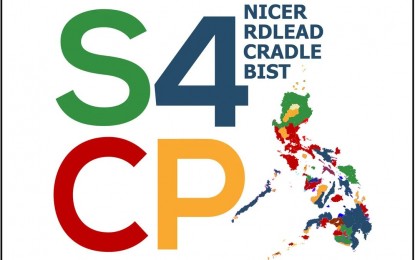
(Photo courtesy of DOST)
The S4CP started in 2016, through subprograms such as the Niche Centers in the Region for R&D (NICER), Collaborative R&D to Leverage Philippine Economy (CRADLE), Business Innovation through S&T (BIST), and R&D Leadership (RDLead) to address concern on regional disparity and to advance science, technology and innovation in the country.
Another project was the collaboration between the University of Sto. Tomas and Banawe Soybean Corporation wherein they will develop a vegetarian sausage from pure okara -- a major agro-waste resulting from soymilk and tofu processing. "Food waste valorization is one means towards achieving food security," Guevara noted.
Meanwhile, she announced that the Center for Advanced Batteries R&D of the Technological Institute of the Philippines is developing new cathode materials for next-generation batteries that could enable local manufacturing of batteries using abundantly available raw materials.
"If the production could scale up, the Philippines could also be a net exporter of batteries to address the future demand for electric vehicle and grid storage applications," Guevara said.
Other projects feted were partnership between UP Diliman and Batangas Egg Producers Cooperative (BEPCO) to produce egg powder from low value, cracked eggs. Studies on sambong to standardize the use in therapeutic medicine are also being done by Pascual Pharma Corporation and the Technological Institute of the Philippines.
The official emphasized that through the effort of the academe, the private industry, S&T experts, and agencies there are now 15 R&D Centers leading research and development on agriculture, livestock, industry, energy, environment and health with a total approved grant of PHP 880 million.
A total of PHP 258.5 million has been awarded to 55 academe-industry collaborations, she added.
For his part, DOST Secretary Fortunato de la Peña said that to accelerate the research and development in the country, there is a need to focus the efforts and resources on sustainable solutions that could significantly contribute to the country's economic development. (PNA)
